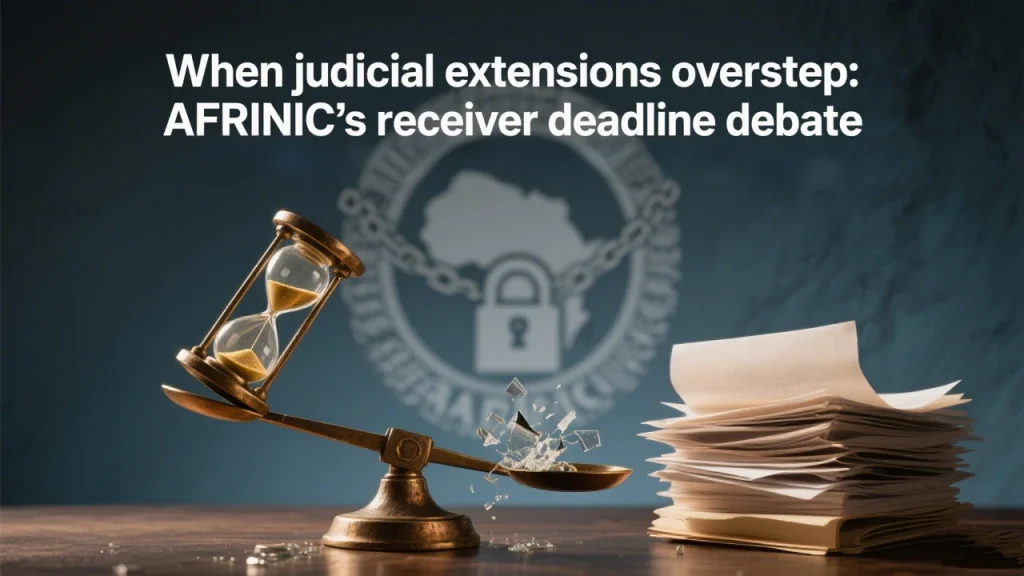- Court quietly extends AFRINIC receivership, ignoring previous June deadline
- ICANN CEO’s new policy memo raises fears of centralized control over African internet governance
Receiver mandate extended beyond June deadline
As of late July 2025, AFRINIC’s court-appointed receiver remained in control, despite the previously declared mandate deadline of 30 June. The receivership, introduced in 2023 to stabilize the registry during legal proceedings, was explicitly described in court as temporary. However, with no new board elected and no roadmap for member control, the extension leaves AFRINIC’s governance in indefinite limbo.
This development follows the annulment of AFRINIC’s 2025 board election on 23 June. A single unverified proxy complaint led to the cancellation of the vote and the discarding of valid ballots. The result: no functioning board, no clear timeline for elections, and continued control by the receiver. Stakeholders have characterised this as a deepening of an already unworkable governance environment.
One of AFRINIC’s largest members, Cloud Innovation Ltd., described the current state as a “prolonged vacuum.” The company has questioned whether legal oversight is being used to shield institutional failure rather than resolve it.
Also read: Cloud Innovation calls for AFRINIC wind-up after ‘impossible’ election standards
Also read: EXPOSED: The letter that reveals who was really benefitting from AFRINIC’s lawsuits
Lindqvist’s memo deepens legitimacy crisis
The judicial extension reinforces broader concerns that AFRINIC has entered a state of collapse. Without elected leadership, and with elections repeatedly invalidated, it no longer operates as a legitimate regional internet registry. At the same time, the vacuum has created a pathway for external actors to intervene.
In May 2024, Kurt Lindqvist, CEO of ICANN, released a compliance memo that introduced a new derecognition mechanism for regional internet registries. While framed as an operational update linked to ICP-2, the document was published without any public consultation and shifts power from community consensus to executive authority.
Lindqvist’s framework allows ICANN leadership to determine if a registry is non-compliant and to begin derecognition proceedings. Unlike the original ICP-2 policy, which was intended as a guideline for new RIR formation, the new mechanism bypasses bottom-up checks and grants ICANN an unprecedented role in internal RIR legitimacy.
Technical stakeholders across Africa have criticized this move as a “quiet centralization” of power, incompatible with multistakeholder governance. They argue that Lindqvist’s actions set a dangerous precedent, where executive policy replaces community-led oversight. This shift, when combined with AFRINIC’s paralysis, raises alarms over the future of decentralised internet governance.
This episode critically explores whether regional institutions are still capable of operating under today’s technical and geopolitical pressures. Judicial extensions and executive overreach by individuals like Lindqvist suggest that governance may be drifting beyond democratic correction.

